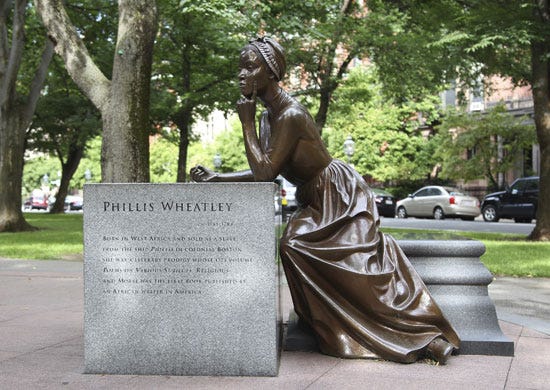When compared, the works of Olaudah Equiano and Phillis Wheatley show two distinctly different lives of enslaved, native-born Africans. Besides their country of birth and the color of their skin, their similarities as writers end their experiences at the hands of their slavers displaying near polarizing treatments, and therefore, polarizing ideas regarding the world of their birth and the world they were forced into. Even though the eyes of a slave, Equiano saw the beauty of Africa through the hands of his captors, and kindness through his ever-changing owners. Only when introduced to those of European descent, does his nightmare as a slave truly begin. Wheatley, on the other hand, is fortunate enough to be delivered into the hands of kindness when she is brought to America. She is treated as a daughter and is raised with education and prosperity. Although both writers find eventual success within their lives, both have incredibly different paths leading up to the achievement of their statures.
Being taken from one’s home, one’s friends, and one’s family, is an easy experience for no one. After suffering the pain of being separated from his sister, Equiano found himself in “the hands of a chieftain, in a very pleasant country,” where he was “used…extremely well,” one of the chieftain’s wives even behaving “something like [his] mother” (358). Equiano never received cruelty at the hands of this family even though he was considered a slave to them. Even after fleeing initial punishment and fearing harsher retribution upon his return, he was “ordered…to be taken care of, and not be ill-treated” after experiencing a slight chastisement (359). The second household Equiano found himself a part of treated him equally with kindness as the first, and through “their treatment of [him], made [him] forget that [he] was a slave” (361). As a slave, with the obvious exception of freedom, one can ask for little more than to be treated with kindness, and while a slave in Africa, Equiano received such treatment. Even after being boarded onto the slave ship, those of his ilk, “those who had brought [him] on board,” attempted to “cheer [him],” showing kindness enough to try and help him to feel better (362). But once he was fully in the hands of white men, he came to witness and experienced cruelty unlike that of anything he previously saw in Africa.

Wheatley on the other hand, after arriving in America, was brought into the loving hands of Susanna Wheatley, who was “sympathetic toward this very frail and intelligent child” (401). Susanna and John Wheatley educated and raised her as their daughter. They were even part of a community that denounced slavery as being “incompatible with the Christian life,” which allowed om a young age and find her capture from Africa a boon (401). She sees Africa as a “pagan land” one that would never have allowed her to find her belief in God, to grow up the daughter of such kind people, and to find such success and happiness in her adult years.
Although Equiano would eventually find freedom from slavery, success, and would settle down in London, his feelings towards Africa are much more positive than Wheatley’s. Compared to his treatment by those of European descent, his time spent as a slave in Africa was pleasant. His is likely a narrative shared by many other African-born slaves, while Wheatley’s is a narrative of rarity.
C.F. https://medium.com/@PatriciaKeeley/equiano-vs-wheatley-a-slaves-experience-9c573d041732
No hay comentarios:
Publicar un comentario